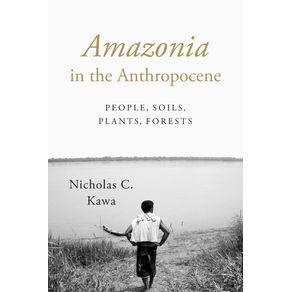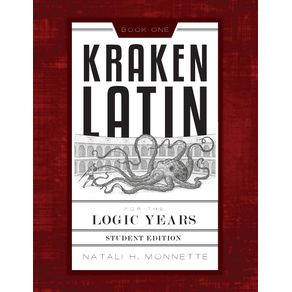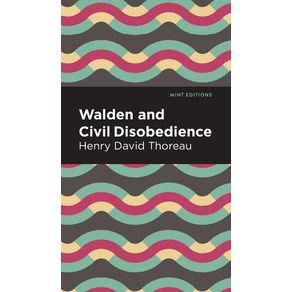| Origem | Literatura Estrangeira |
|---|---|
| Quantidade de Páginas | 30 |
| Acabamento | Capa Comum |
| Autores | shamsu yahaya |
| Idioma | Inglês |
| Edição | 0 |
| Selo | GRIN Publishing |
 Doma Vaquera e Equitação de Trabalho
Doma Vaquera e Equitação de Trabalho
Draft2Digital
R$ 89,05 à vista Gato de Pelo Curto Inglês
Gato de Pelo Curto Inglês
Draft2Digital
R$ 93,40 à vista Psicologia Canina e Comportamento Canino
Psicologia Canina e Comportamento Canino
Draft2Digital
R$ 91,03 à vista Pastor-Australiano
Pastor-Australiano
Draft2Digital
R$ 93,01 à vista The Equine Listenology Guide - Essential horsemanship, horse body language & behaviour, groundwork, in-hand exercises &
The Equine Listenology Guide - Essential horsemanship, horse body language & behaviour, groundwork, in-hand exercises &
Grey Pony Films
R$ 168,82 ou até 3x sem juros Border Collies Go Around the World Coloring Book
Border Collies Go Around the World Coloring Book
Feel Happy Limited
R$ 73,72 à vista I Cant Watch Anymore
I Cant Watch Anymore
Epona Media A/S
R$ 126,39 ou até 2x sem juros Historic Yellowstone National Park
Historic Yellowstone National Park
Rowman & Littlefield Publishing Group Inc
R$ 141,15 ou até 2x sem juros Rhodesian Ridgeback Training - Dog Training for your Rhodesian Ridgeback puppy
Rhodesian Ridgeback Training - Dog Training for your Rhodesian Ridgeback puppy
Draft2Digital
R$ 102,68 ou até 2x sem juros Sacred Leaves of Candomblé
Sacred Leaves of Candomblé
Univ of Chicago behalf of University of Texas
R$ 236,55 ou até 3x sem juros Amazonia in the Anthropocene
Amazonia in the Anthropocene
Univ of Chicago behalf of University of Texas
R$ 230,20 ou até 3x sem juros Las ciudades y los perros
Las ciudades y los perros
Lulu Press
R$ 96,37 à vista Kraken Latin 2
Kraken Latin 2
Canon Press
R$ 189,07 ou até 3x sem juros Kraken Latin 1
Kraken Latin 1
Canon Press
R$ 157,55 ou até 3x sem juros Thermo-Physical Properties of Rocks
Thermo-Physical Properties of Rocks
Allied Publishers Pvt. Ltd.
R$ 113,98 ou até 2x sem juros Treino e Formação de Cavalos Jovens (Natural Horsemanship)
Treino e Formação de Cavalos Jovens (Natural Horsemanship)
Draft2Digital
R$ 102,09 ou até 2x sem juros Gato de Pelo Curto Inglês
Gato de Pelo Curto Inglês
Draft2Digital
R$ 93,40 à vista Equitação Natural
Equitação Natural
Draft2Digital
R$ 92,96 à vista A Land
A Land
Random House
R$ 141,10 ou até 2x sem juros ComPETability
ComPETability
Amy Shojai
R$ 163,60 ou até 3x sem juros Runaway
Runaway
Longleaf Services on behalf of Univ of N. Carolina
R$ 236,59 ou até 3x sem juros Historic Yellowstone National Park
Historic Yellowstone National Park
Rowman & Littlefield Publishing Group Inc
R$ 141,15 ou até 2x sem juros Shetland Sheepdog Training - Dog Training for your Shetland Sheepdog puppy
Shetland Sheepdog Training - Dog Training for your Shetland Sheepdog puppy
Draft2Digital
R$ 102,92 ou até 2x sem juros Sea Shepherd
Sea Shepherd
W. W. Norton
R$ 140,56 ou até 2x sem juros Birds of Tropical America
Birds of Tropical America
Univ of Chicago behalf of University of Texas
R$ 180,57 ou até 3x sem juros Positive Herding 101
Positive Herding 101
Positive Herding 101
R$ 193,07 ou até 3x sem juros Las ciudades y los perros
Las ciudades y los perros
Lulu Press
R$ 96,37 à vista Kraken Latin 3
Kraken Latin 3
Canon Press
R$ 189,31 ou até 3x sem juros Kraken Latin 1
Kraken Latin 1
Canon Press
R$ 157,55 ou até 3x sem juros Thermo-Physical Properties of Rocks
Thermo-Physical Properties of Rocks
Allied Publishers Pvt. Ltd.
R$ 113,98 ou até 2x sem juros Doma Vaquera e Equitação de Trabalho
Doma Vaquera e Equitação de Trabalho
Draft2Digital
R$ 89,05 à vista Treino e Formação de Cavalos Jovens (Natural Horsemanship)
Treino e Formação de Cavalos Jovens (Natural Horsemanship)
Draft2Digital
R$ 102,09 ou até 2x sem juros Persa (Gato)
Persa (Gato)
Draft2Digital
R$ 91,90 à vista Gato de Bengala (Bengal)
Gato de Bengala (Bengal)
Draft2Digital
R$ 84,83 à vista A Land
A Land
Random House
R$ 141,10 ou até 2x sem juros ComPETability
ComPETability
Amy Shojai
R$ 163,60 ou até 3x sem juros Border Collie Training - Dog Training for your Border Collie puppy
Border Collie Training - Dog Training for your Border Collie puppy
Draft2Digital
R$ 101,78 ou até 2x sem juros Shetland Sheepdog Training - Dog Training for your Shetland Sheepdog puppy
Shetland Sheepdog Training - Dog Training for your Shetland Sheepdog puppy
Draft2Digital
R$ 102,92 ou até 2x sem juros Rhodesian Ridgeback Training - Dog Training for your Rhodesian Ridgeback puppy
Rhodesian Ridgeback Training - Dog Training for your Rhodesian Ridgeback puppy
Draft2Digital
R$ 102,68 ou até 2x sem juros Birds of Tropical America
Birds of Tropical America
Univ of Chicago behalf of University of Texas
R$ 180,57 ou até 3x sem juros Positive Herding 101
Positive Herding 101
Positive Herding 101
R$ 193,07 ou até 3x sem juros Walden and Civil Disobedience
Walden and Civil Disobedience
Mint Editions
R$ 144,59 ou até 2x sem juros Kraken Latin 3
Kraken Latin 3
Canon Press
R$ 189,31 ou até 3x sem juros The Aromatic Cat
The Aromatic Cat
Nayana Morag
R$ 172,12 ou até 3x sem juros Thermo-Physical Properties of Rocks
Thermo-Physical Properties of Rocks
Allied Publishers Pvt. Ltd.
R$ 113,98 ou até 2x sem juros